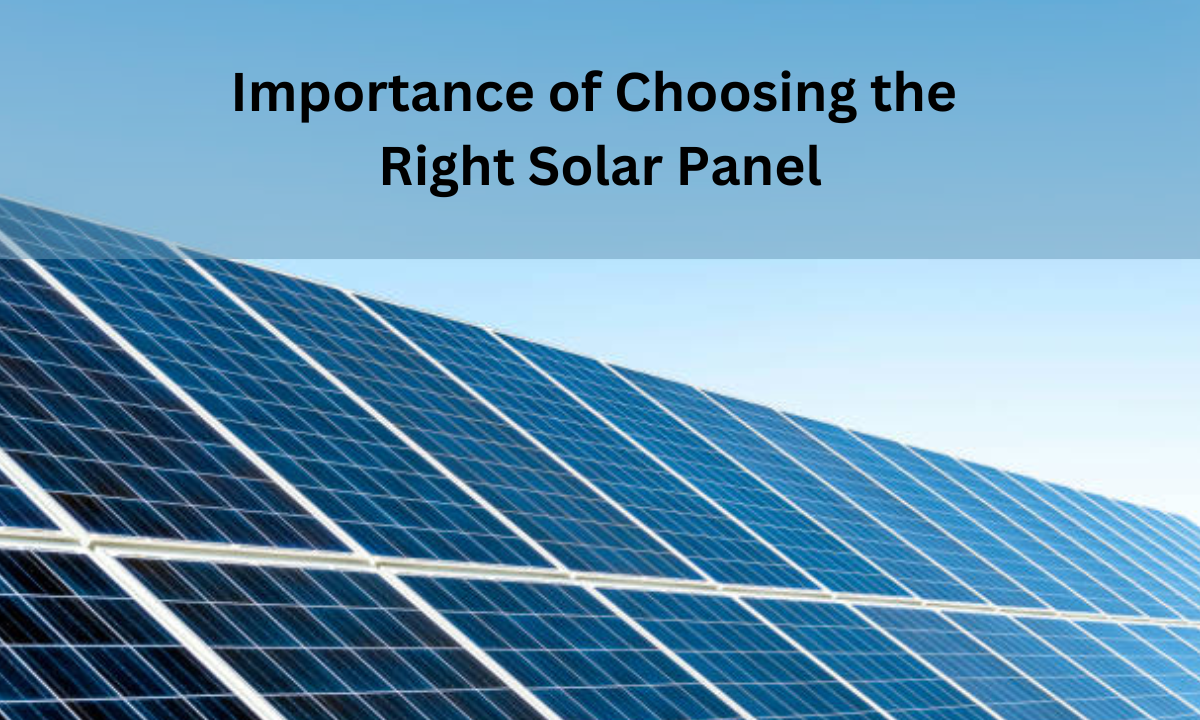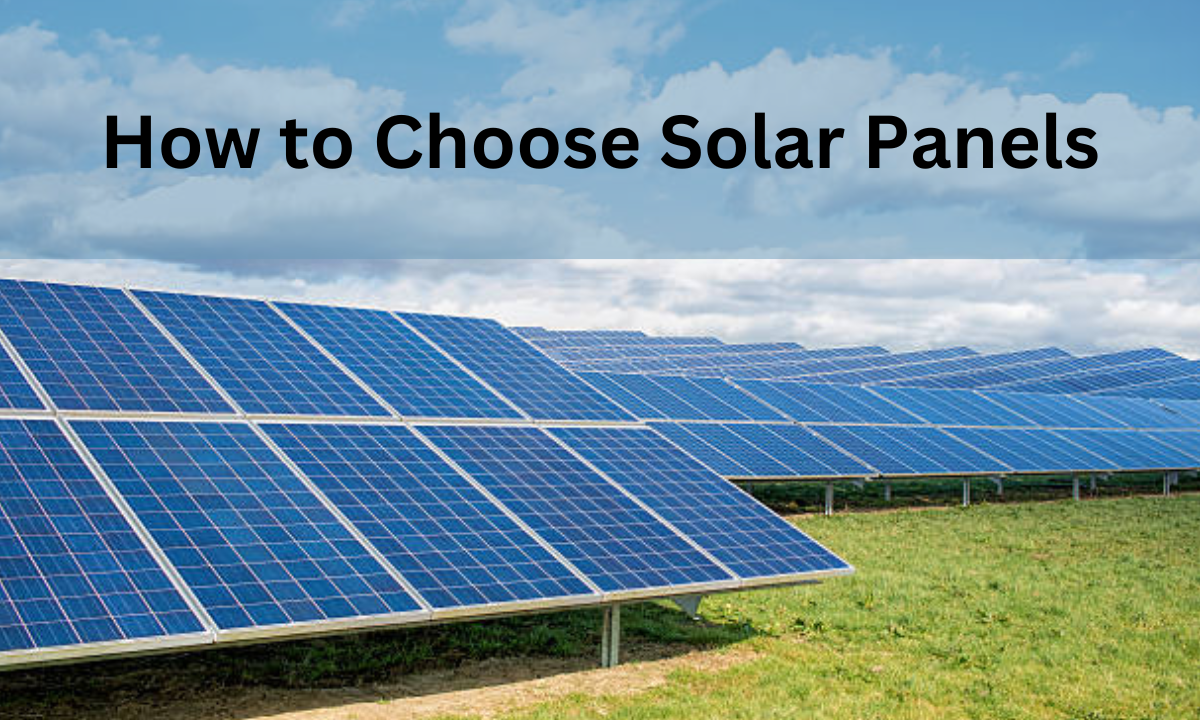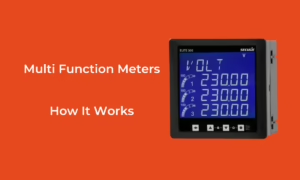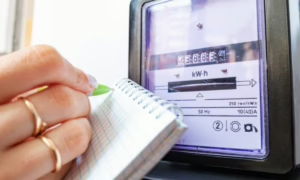Choosing the right solar panels as the demand for renewable energy grows, an increasing number of individuals and businesses are thinking about installing solar panels. Choosing the right solar panels is crucial for enhancing efficiency, saving money, and reaping long-term benefits. With so many options available, it’s vital to understand what to look for so you can make an informed purchase that matches your requirements.
This class will walk you through the important considerations when purchasing solar panels for your home or company. We will discuss everything from panel types to efficiency, durability, and cost. Working with a reliable solar panel distributor can also help the process run more easily by providing access to high-quality products and expert installation services. Whether you want to reduce your carbon footprint or save money on your energy bills, this article will help you weigh your alternatives and make the best investment in solar energy.
Importance of Choosing the Right Solar Panel.

Choosing the right solar panels is important for a variety of compelling reasons.
Efficiency: High-quality solar panels are designed to convert more sunlight into electricity. This enhanced efficiency means you’ll need fewer panels to meet your energy needs, allowing you to maximize the space available for installation while also supplying the most energy.
Durability: Durability is an important component in determining the longevity of solar panels. Investing in panels designed to endure a variety of weather situations assures that they will survive longer and provide consistent energy production over time.
Cost Savings: While high-efficiency solar panels require a larger initial investment, they can drastically reduce your energy expenses over time. The better efficiency and longer lifespan of solar panels result in greater cost savings and a higher ROI.
Environmental Impact: Choosing efficient solar panels allows you to lower your carbon footprint. High-quality panels provide more clean energy, reducing reliance on fossil fuels and promoting a more sustainable future.
Understanding several types of solar panels.
When choosing solar panels, it’s crucial to understand the three main varieties available:
Monocrystalline panels consist of a single crystal structure of silicon, making them extremely efficient in converting sunlight into electricity. Because of their great efficiency, they take up less space when installed, making them perfect for properties with limited roof space. However, better efficiency comes at a higher cost, as monocrystalline panels are often more expensive than other varieties.
Polycrystalline panels, made up of multiple silicon crystals, are less expensive than monocrystalline panels. Panasonic Solar Panels, for example, provides high-quality polycrystalline panels at an affordable price. While they are slightly less efficient than monocrystalline panels, they are more cost-effective for budget-conscious purchasers.
Thin-film panels, constructed from a variety of materials including cadmium telluride and amorphous silicon, are known for their flexibility and lightweight design. These panels are often less efficient than crystalline panels, requiring more space to generate the same amount of power. However, its adaptability allows for unique installation options, such as curved surfaces or portable applications.
Factors to Consider When Choosing Solar Panels
When choosing solar panels for your house or company, it’s important to examine three crucial considerations to guarantee you make the best decision:
Efficiency: Efficiency relates to solar panels’ capacity to convert sunlight into power. Higher-efficiency panels produce more electricity with the same quantity of sunlight, making them excellent for boosting energy production. To achieve the best performance, use panels with an efficiency rate of at least 15-20%.
Durability: Durability is important since it determines how long your solar panels last. Evaluate the panels’ ability to withstand harsh weather conditions like hail, wind, and snow. Durable panels typically include extended warranties and certifications, confirming their capacity to survive harsh environments and provide consistent service for many years.
Cost: High-efficiency panels may be more expensive initially, but they can produce significant long-term energy savings. It is vital to balance the initial expenditure with the promise of lower energy expenses over time. Consider the total cost of ownership, including installation and maintenance.
Manufacturer Reputation: Choose solar panels from renowned manufacturers known for their quality and customer service. Established manufacturers often provide longer warranties and support, ensuring peace of mind and reliable performance.
Aesthetics: Another important element to consider is how solar panels will seem on your property. Some panels are designed to blend seamlessly with roofing materials, resulting in a more streamlined and visually appealing appearance. Consider how the panels will appear on your roof and select a design that complements your home’s architecture.
Local Climate: The performance of solar panels varies depending on the climate. Make sure the panels you choose are appropriate for your area’s weather patterns. Some panels, for example, perform better in hotter areas, while others are more efficient in cooler temperatures.
By carefully examining these factors—efficiency, durability, cost, manufacturer reputation, aesthetics, and local climate—you can choose solar panels that will fulfill your energy needs and deliver long-term value.
Warranty and Durability of Solar Panel
Warranties are essential to assure solar panels’ long-term performance and durability. There are two major categories of warranties to consider:
Product Warranty: Product warranties typically cover defects in materials and workmanship for 10 to 25 years. A strong product warranty ensures that any manufacturing problems are addressed, giving you peace of mind.
Performance Warranty: This warranty ensures a certain level of energy output over time, usually at least 80% after 25 years. This form of warranty ensures that your panels will continue to generate a significant amount of electricity over their lifetime.
Additionally, seek durability certifications such as IEC 61215 and IEC 61730. These certificates demonstrate that the panels have been rigorously evaluated for long-term performance and safety in a variety of situations. Prioritizing warranties and certifications will help ensure the reliability and longevity of your solar panel investment.
Cost and Budget Considerations
To make an informed selection while installing solar panels, consider the following cost factors:
Calculate Total Costs: In addition to the original panel purchase, consider installation costs, ongoing maintenance, and prospective upgrades like inverters or batteries. Understanding the total cost of ownership will allow you to budget for your solar installation.
Consider Incentives: Look into government incentives, tax credits, and refunds geared at encouraging renewable energy consumption. These incentives can dramatically reduce your upfront costs while increasing your long-term investment return.
Evaluate Financing Options: To make solar energy more affordable, consider financing options such as solar loans, leases, or power purchase agreements. Each method has advantages, such as deferring expenditures over time or using energy savings to offset loan payments.
By carefully assessing these cost and budget concerns, you can tailor your solar panel purchase to meet your financial objectives and maximize long-term energy savings.
Conclusion: Selecting the Best Option for Solar Panel Installation.
Choosing the best solar panels requires careful consideration of efficiency, durability, cost, and design. If you are knowledgeable about the various panel types and take warranties and financial constraints into account, you can confidently select panels that best meet your home’s or business’s energy requirements.
Prioritizing quality is vital, so choose panels from respected manufacturers known for their longevity and environmental care. This not only ensures long-term performance but also decreases your environmental impact by using renewable energy sources.
Finally, picking the proper solar panels is an important step toward adopting sustainability and reducing your carbon footprint. By following this comprehensive guide, you will be able to make an informed selection that meets your individual needs, resulting in significant energy savings and a more environmentally friendly future for future generations.
Sun-AP Ecopower is one of the leading solar panel distributors in India, providing high-quality solar products nationwide.




